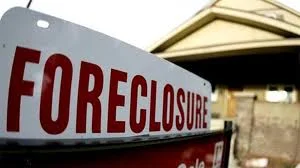 |
| Image credit:Homeowner today.com |
A person has the privilege by law, with the right to cancel a mortgage refinance or home equity loan if they tend to act quickly and adhere to the rules. A known power or the law known as the `right to rescission provides the borrower with the ability in some situations, the right to cancel their loan deals within a period of three days with no questions asked and be free.
In other words it could mean as another way of saying `right to rescind’ or `cancel’a given contract without losing any money. Within a period of 20 days, the lender then has to give up its claim to the property as collateral and should refund the fees which may have been paid by the borrower. According to Margot Saunders, counsel or the National Consumer Law Centre, states that it has been designed with a view to provide lenders with accurate disclosures and that consumers do not sign up for loans which are different than what could have been described to them.
This right is intended to safeguard the consumer from the risk of using family home or the equity in order to secure a loan and is not applicable in situations where the mortgage is made to buy the house itself. Nessa Feddis, Vice President and Senior Counsel to American Bankers Association, states that it is not to protect the (home) purchaser but to protect the person having equity in the home.
Covers Mortgages – Companies/Banks Etc.
Categories where the right of rescission are applicable are – home equity loan which is often known as second mortgage, mortgage refinance – if the new loan does not come from the same lender which had financed the original home purchase loan, home equity line of credit, cash-out refinance – irrespective of whether it is a new loan that comes from the same lender who had made the original home purchase loan though only the new money is covered by the right of rescission. According to Saunders, it does not matter what kind of lenders the money is borrowed from and the right of rescission covers loans from mortgage companies, banks as well as other lenders.
No exclamation is essential in the case of cancellation of the transaction within a three days’ time, as per Carole Reynolds, Senior Attorney with the Federal Trade Commission and the fact that the said loan is not needed is sufficient enough for an exclamation.
The Truth in Lending Act
The law - `The Truth in Lending Act’ was for the purpose of shielding borrowers from unscrupulous lenders with the right of rescission and was intended to oppose smooth talking lenders intending to fleece borrowers out of their money and their homes. Some of the borrowers may be under the wrong impression that there is a right of rescission with all types of mortgages which is not so.
Since state and local statutes differ, the federal right of rescission is specific which is mentioned in the Truth in Lending Act. Saunders state that there is no right of rescission for the purchase money mortgages and some of these categories with regards to the right of rescission which is not applicable are –loans made to purchase a house, any loans either 1st or 2nd mortgages, refinancing mortgages, etc., which involve properties which are not the primary residence and business loans.
